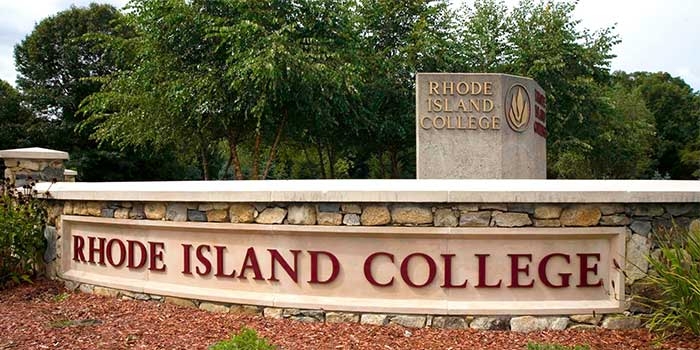RIC School of Social Work Receives $1M-Plus Grant to Fund School-Based Mental Health Interventions
- News & Events
- News
- RIC School of Social Work Receives $1M-Plus Grant to Fund School-Based Mental Health Interventions

The School of Social Work will train 64 master’s-level social workers over four years in Providence public schools

The School of Social Work at Rhode Island College has been awarded a $1,067,539 grant from the Health Resources & Services Administration of the U.S. Department of Health and Human Services to improve and expand school mental health services in underserved Providence public schools.
With this grant, the School of Social Work will train a total of 64 M.S.W. clinical social workers over a period of four years, with emphasis on recruiting multilingual and racially diverse candidates. Along with coursework, the students will intern in elementary, middle and high schools throughout Providence, providing clinical social work services. They will become part of an interprofessional team within the school setting, which provides screening and diagnosis, medications and interventions on a daily basis. Graduates of this program will be eligible to serve as school clinical social workers in Rhode Island.

“There is a clear need for school mental health workers in Rhode Island,” says Interim Dean of the School of Social Work Jayashree Nimmagadda.
In the most recent study by Rhode Island Kids Count, Rhode Island has almost double the number of children with a diagnosable mental health condition than the national average, yet the vast majority of these children – especially low-income and nonwhite children – do not receive mental health services. The majority of children who do receive services, do so within their schools. That means school psychologists, counselors and clinical social workers play a critical role in mental health intervention.
The problem is there is not enough school mental health workers to meet the demand. The overall student-school counselor ratio in Rhode Island is 392:1. The recommended ratio by the American School Counselor Association is 250:1. The overall student-social worker ratio in Rhode Island is 686:1. Yet the recommended ratio by the School Social Work Association of America is 250:1.

“With the support of this grant, we will be able to send 16 clinical social work interns each year into schools with the most need,” Nimmagadda says.
This grant will also allow the School of Social Work to train school-based teams – field instructors, faculty and other mental health professionals within the schools (ex. school psychologists and school nurses) – in trauma-informed collaborative practice.
“Students face a myriad of issues, including experiences of trauma,” says M.S.W. Program Chair Jennifer Meade. “Having social work students placed within the school system and having school-based staff trained in trauma-informed practice will enhance the ability of the school system to assess and intervene on behalf of students.”

“RIC’s School of Social Work has long been a center of excellence for lifelong learning in social work and human services in Rhode Island and southeastern New England,” says Nimmagadda.
“We provide students with field experiences that are mutually rewarding, that fulfill a significant need and that increase the representation of clinicians within the communities that they serve,” adds Interim Director of Field Education Paula Coutinho.
“And we place particular emphasis on building partnerships with community agencies,” says Nimmagadda. “These initiatives are how we strengthen our relationships with community agencies where our graduates will eventually work.”

This project is supported by the Health Resources and Services Administration (HRSA) of the U.S. Department of Health and Human Services (HHS) as part of an award totaling $1,067,539. The contents are those of the author(s) and do not necessarily represent the official views of, nor an endorsement by, HRSA, HHS or the U.S. government.
